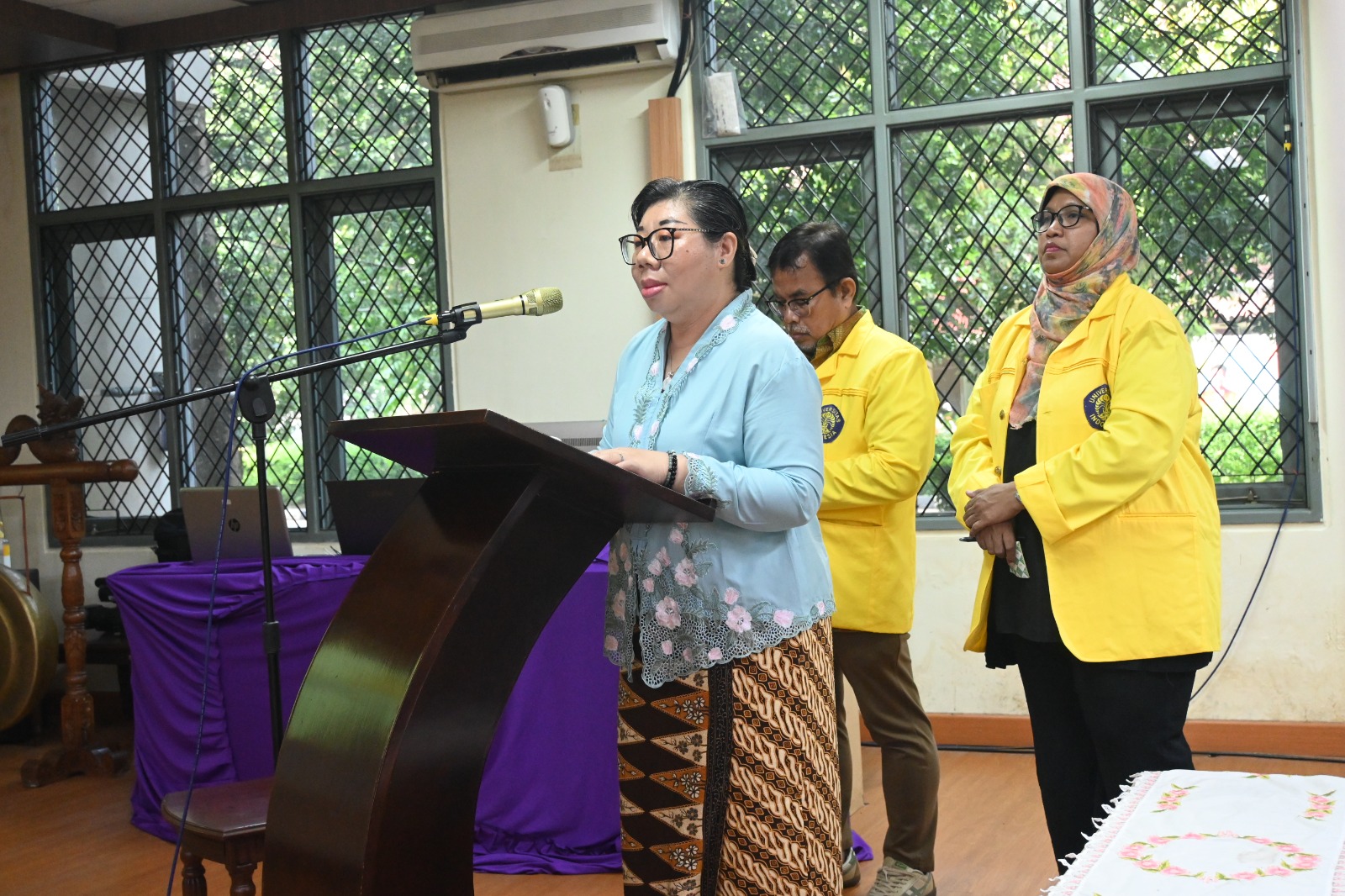On Thursday, June 5, 2025, the Faculty of Public Health (FPH) Universitas Indonesia (UI) once again held an Open Doctoral Promotion Session for a doctoral candidate in the Doctoral Program in Public Health Sciences. Held in the Doctoral Promotion Room, Building G FPH UI, the session examined the dissertation of Meiyanti, titled “Development of Machine Learning for Predicting Tuberculosis Treatment Success Among the Productive Age Population in Indonesia.”
Meiyanti presented her research, which combined technological and public health approaches to improve the treatment success rate of drug-sensitive tuberculosis (DS-TB) in Indonesia. This open session was supervised by Prof. Dr. dra. Dumilah Ayuningtyas, M.A.R.S.
In her presentation, Meiyanti emphasized that medication adherence is key to successful TB treatment. She identified five main dimensions influencing adherence: health system, therapy factors, disease conditions, socio-economic status, and patient-related factors. Indonesia currently ranks as the country with the second-highest TB burden in the world after India and is among the ten countries contributing two-thirds of global TB cases. According to the 2022 TB control program, Indonesia’s TB treatment success rate had reached only 86.5% of the 90% target. The enrollment rate for drug-sensitive TB treatment stood at 86.6%, still below the national target of 100%. Moreover, the estimate of drug-resistant TB cases increased by 17% in 2022 compared to 2020.
Meiyanti’s study aimed to develop a machine learning model using SITB (National TB Information System) data to predict TB treatment success. This effort supports the digital transformation of health services and assists physicians in early TB detection, identifying high-risk patients, and enabling faster and more accurate treatment decisions.
The study found that the random forest algorithm yielded the best performance for multiclass classification, achieving an AUC of 83.76%, sensitivity of 80.47%, and specificity of 79.81%. This model was then implemented into an application called MEI TB-Predict. The development of this predictive application involved several key stages: model development, internal validation, expert consultation and alignment, external validation, and pilot testing. These steps demonstrated the model’s potential to serve as a decision-support tool for healthcare workers in both early and later phases of TB treatment, including after the second-month sputum test results.
Meiyanti also offered policy recommendations based on her findings. She suggested that the government develop national policies and integrate technologies by linking SITB with the national digital health system (such as SATUSEHAT) and expanding the use of AI-based predictive models in primary healthcare. A connecting platform should be developed to allow synergy between the prediction app and SITB, with pilot implementations in selected community health centers (Puskesmas) to evaluate performance. Health worker training should be prioritized to boost adoption, and SITB data input must be optimized through training and real-time reporting incentives. Local governments should be encouraged to regularly analyze data to identify service gaps and allocate resources appropriately.
Successfully defending her dissertation before the board of examiners, Meiyanti was declared a Doctor in Public Health Sciences. She is the 9th doctoral graduate from FPH UI’s Doctoral Program in 2025, the 348th graduate of the Doctoral Program in Public Health Sciences, and the 454th overall doctoral graduate from FPH UI. The session was also attended by Prof. Dr. Besral, S.K.M., M.Sc., and Dr. dr. Rina Kurniasri Kusumaratna, M.Kes., as co-promoters. The examination board consisted of Prof. dr. Adang Bachtiar, M.P.H., D.Sc.; Dr. dr. Raden Rara Diah Handayani, Sp.P(K); dr. Vivian Soetikno, Sp.FK, Ph.D.; Dr. dr. Maxi Rein Rondonuwu, DHSM., M.A.R.S.; and Henry Candra, S.T., M.T., Ph.D.
Her achievement not only marks a personal milestone for Meiyanti but also contributes significantly to advancing public health knowledge, particularly in efforts to improve TB treatment success in Indonesia. It is hoped that this research serves as an important step toward better policy development and the eventual elimination of TB in the country. (promovendus)

